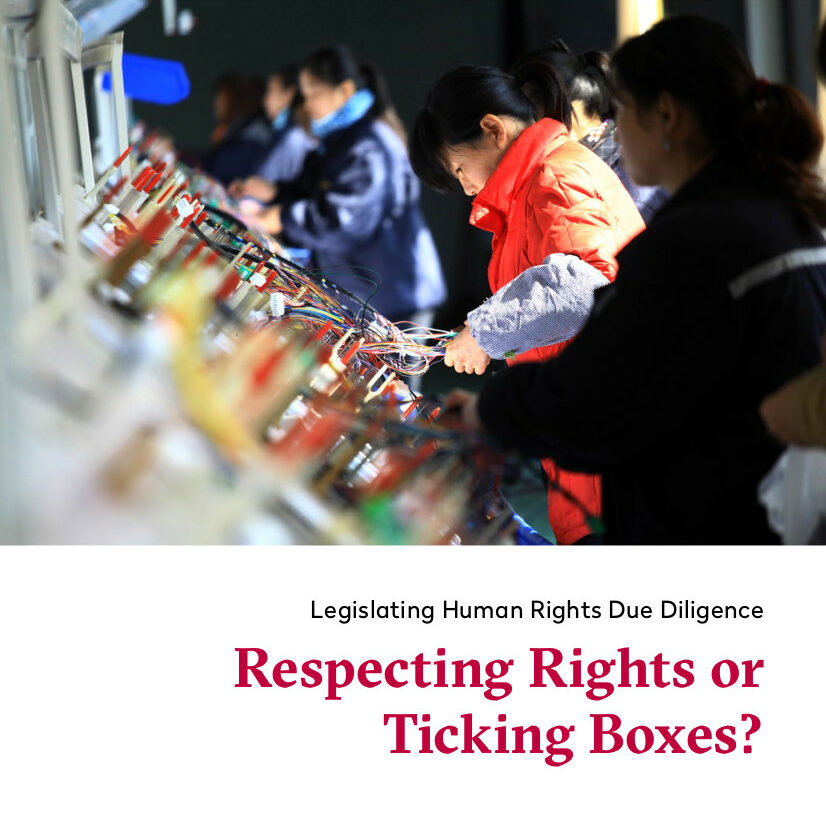
Respecting rights or ticking boxes?
Legislating human rights due diligence

Momentum to enact mandatory human rights due diligence (HRDD) legislation is building around the world. Such legislation is necessary to ensure corporations respect human rights and that victims of corporate abuse have access to justice and remedy. As a result, legislators must determine how to turn the normative standards for HRDD contained in the UN Guiding Principles and OECD Guidelines into binding, hard-law obligations.
Despite their comprehensiveness, these authoritative instruments are principle-based and do not easily translate into law within different jurisdictions and legal traditions. They are formulated in an open and flexible manner as to allow for adaptability in their implementation and respond nimbly to dynamic environments. While some degree of flexibility is inherent in HRDD, it also poses additional risks in terms of misinterpretation or misrepresentation.
If lawmakers do not achieve the right balance between practical flexibility and normative rigidity, there is a significant risk that HRDD laws will become, at best, a paper tiger that yields no real positive impact for people and, at worst, a new greenwashing technique behind which businesses can hide while continuing to do harm.
In order to ensure this does not happen, this briefing paper identifies 12 key interpretations of the norms that legislators must get right when establishing HRDD obligations.
This is a joint briefing paper by Clean Clothes Campaign, ECCHR, Public Eye and SOMO.
Do you need more information?
-

Joseph Wilde-Ramsing
Advocacy Director
Partners
Publication

Related news
-
 CSDDD Datahub reveals law covers fewer than 3,400 EU-based corporate groupsPosted in category:News
CSDDD Datahub reveals law covers fewer than 3,400 EU-based corporate groupsPosted in category:News David Ollivier de LethPublished on:
David Ollivier de LethPublished on: -
 Additional evidence filed against Booking.com for profiting from illegal settlementsPosted in category:News
Additional evidence filed against Booking.com for profiting from illegal settlementsPosted in category:News Lydia de LeeuwPublished on:
Lydia de LeeuwPublished on: -
 The hidden human costs linked to global supply chains in ChinaPosted in category:News
The hidden human costs linked to global supply chains in ChinaPosted in category:News Joshua RosenzweigPublished on:
Joshua RosenzweigPublished on:

